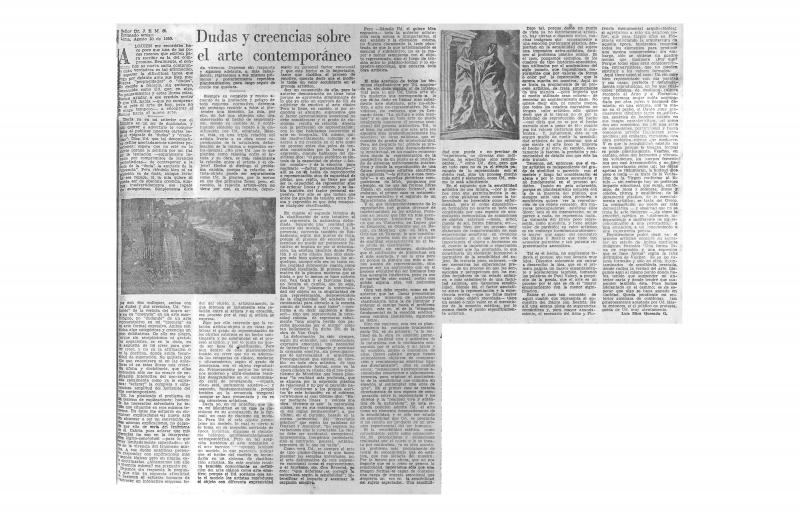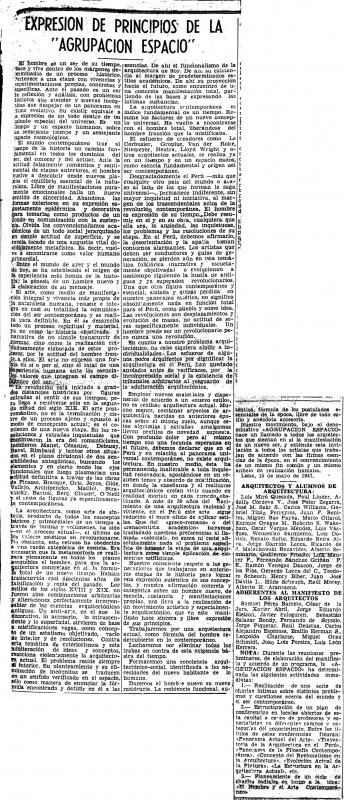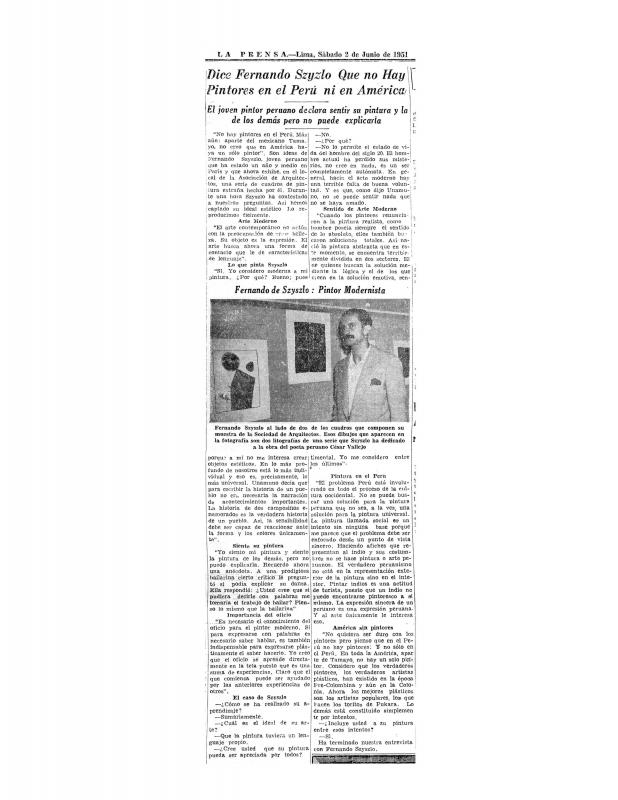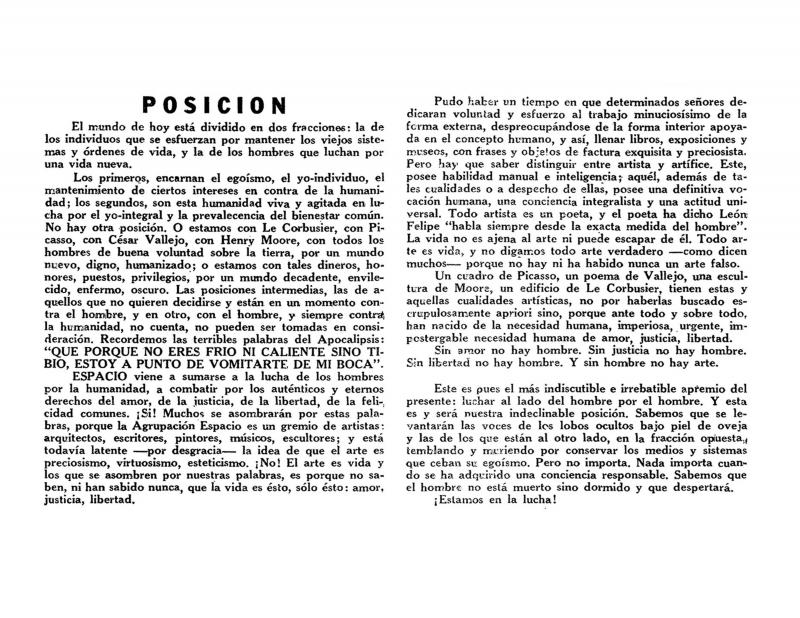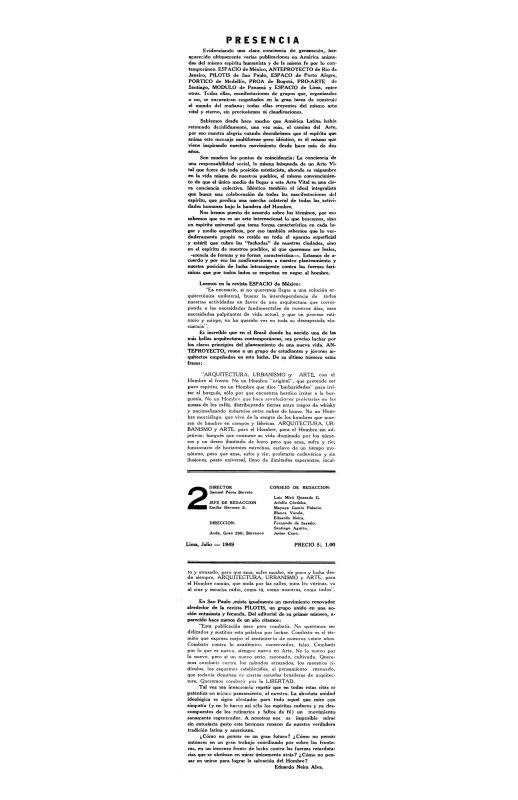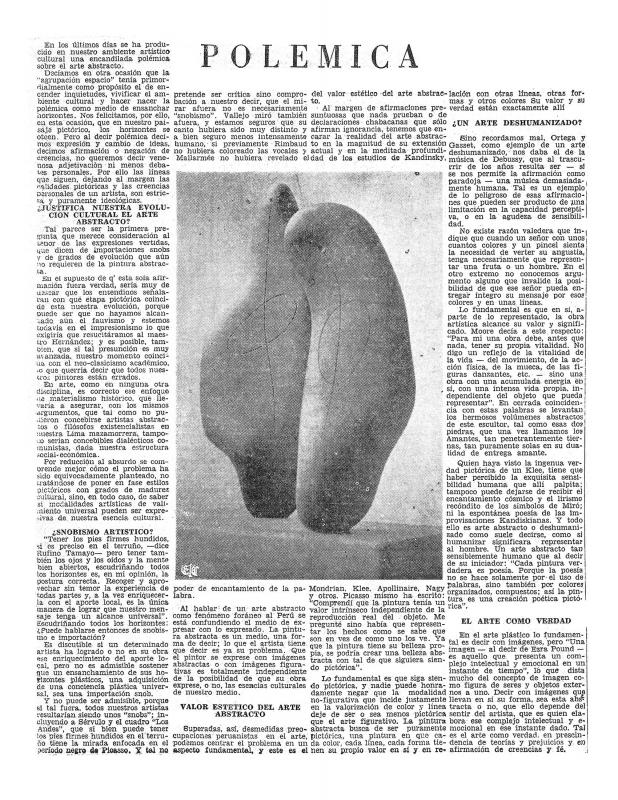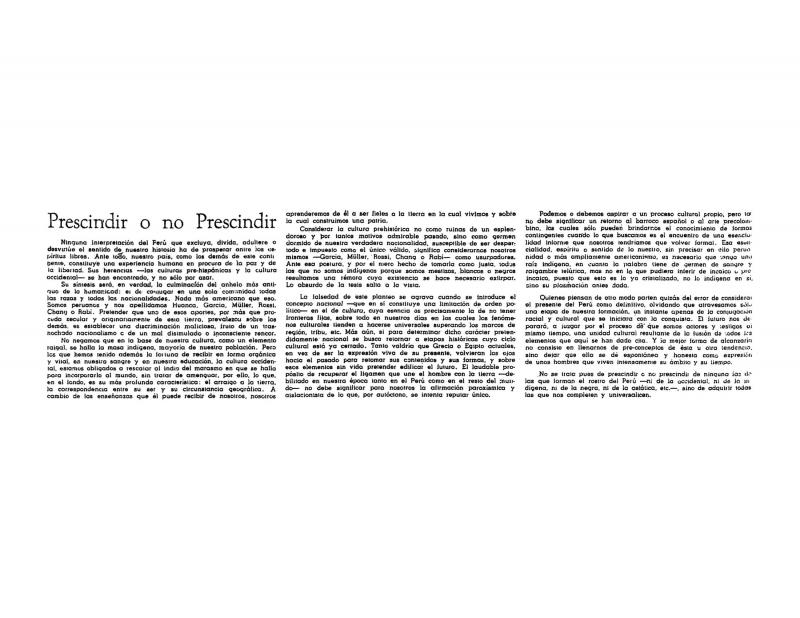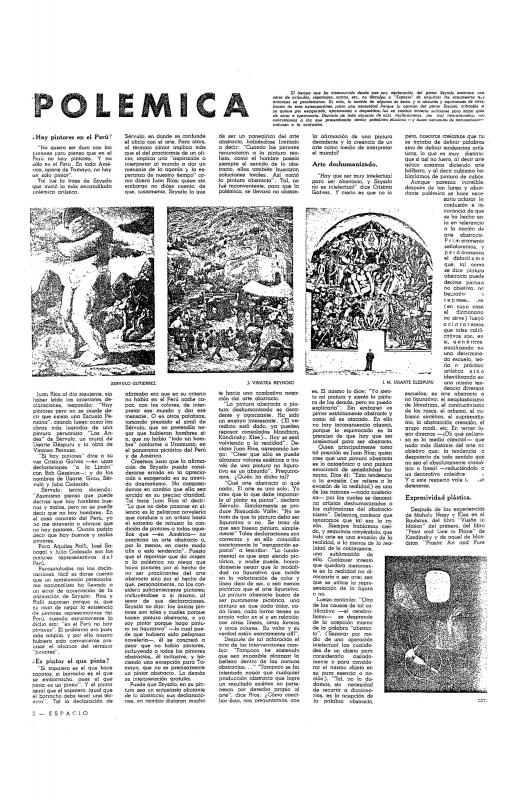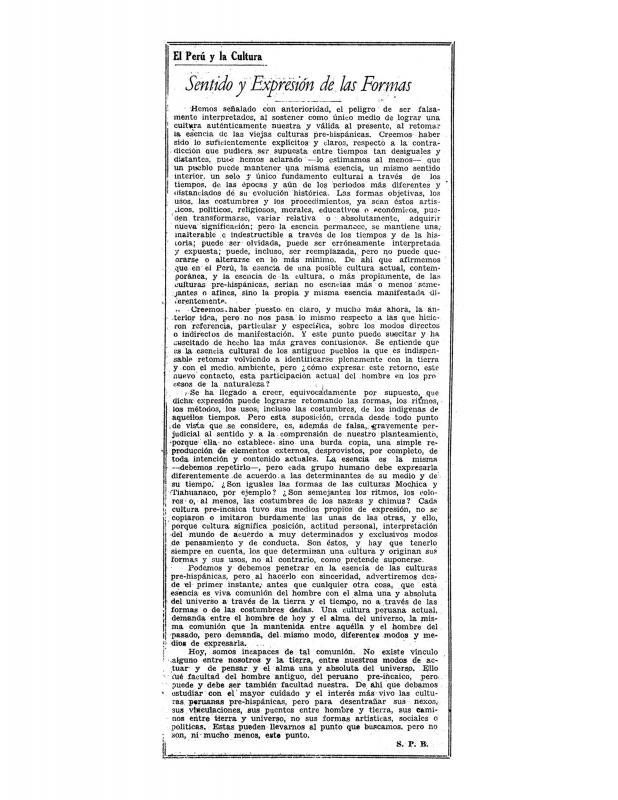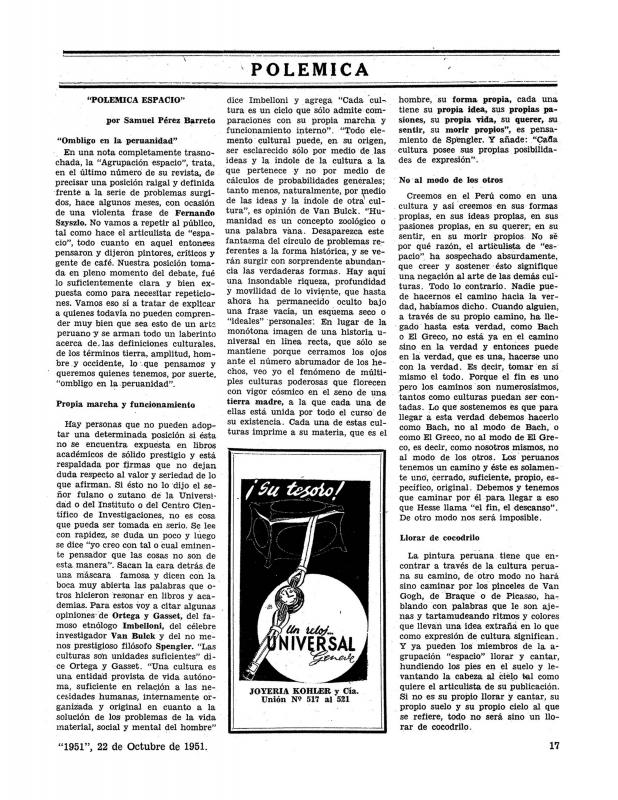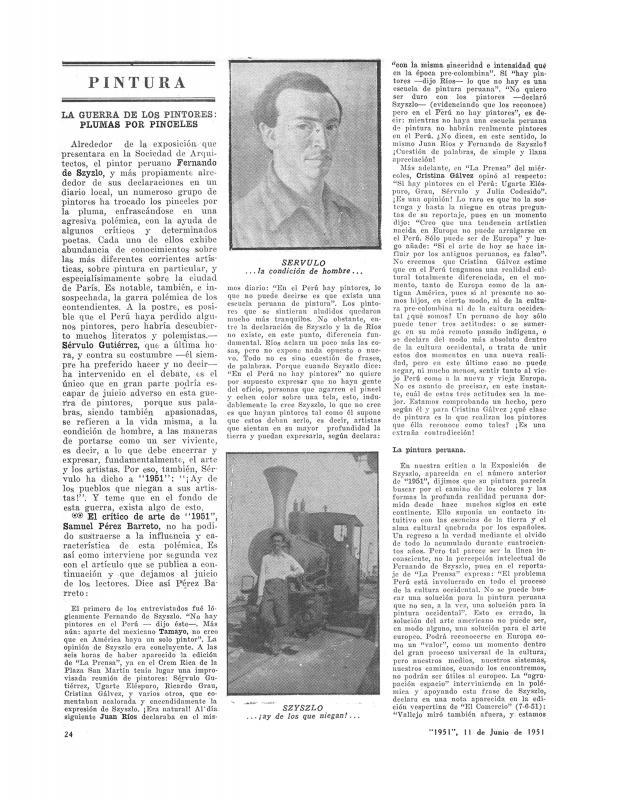Due to both his radical stance and his interest in theory, architect Luis Miró Quesada Garland (1914–94) was a leading figure in the debates on art in Peru in the mid-20th century. He was the main writer of the “Expresión de principios” released by the Agrupación Espacio, a group of Peruvian architects, writers, artists, and intellectuals. Published in 1947, that document would become the foundational text of Peruvian modern art. Son of one of the owners of Lima-based newspaper El Comercio, Miró Quesada Garland published a periodic column in that influential newspaper’s Sunday supplement. From that platform, Espacio and Miró Quesada Garland himself advocated and defended the most recent international tendencies in modern art and architecture. Indeed, his writings laid the basis for the theory of abstraction in Peru in the fifties, which was characterized by a formalist and atemporal understanding of art. As this exchange of letters with journalist Jorge Mejía published in Miró Quesada Garland’s Sunday column in the newspaper indicates (Lima, August 1955), the architect’s stance had already taken shape by the early fifties. [See in the ICAA digital archive Miró Quesada Garland’s article “Dudas y creencias sobre el arte contemporáneo” (doc. no. 1138869)]. Miró Quesada Garland disagreed with the categories that Mejía formulated, since in them—he argued—aesthetic values were seen as less important than temporal considerations.
[For further reading on the Espacio group and its publication Espacio, see the following articles: “Expresión de principios de la Agrupación Espacio” (doc. no. 1126309), and (unsigned) “Dice Fernando Syszlo que no hay pintores en el Perú ni América: el joven pintor peruano declara sentir su pintura y la de los demás pero no puede explicarla” (doc. no. 1137793). The following texts were written by the Agrupación Espacio itself: “Posición” (doc. no. 1143745), “Presencia” (doc. no. 1150278), “Polémica” (doc. no. 1137823), “Prescindir o no prescindir” (doc. no. 1138933), and “Polémica: ¿hay pintores en el Perú?” (doc. no. 1139402). See as well the following texts by Samuel Pérez Barreto: “El Perú y la cultura: Sentido y expresión de las formas” (doc. no. 1138491), “Polémica: ‘polémica Espacio’” (doc. no. 1137916), and “Pintura: la guerra de los pintores: plumas por pinceles” (doc. no. 1137839)].

